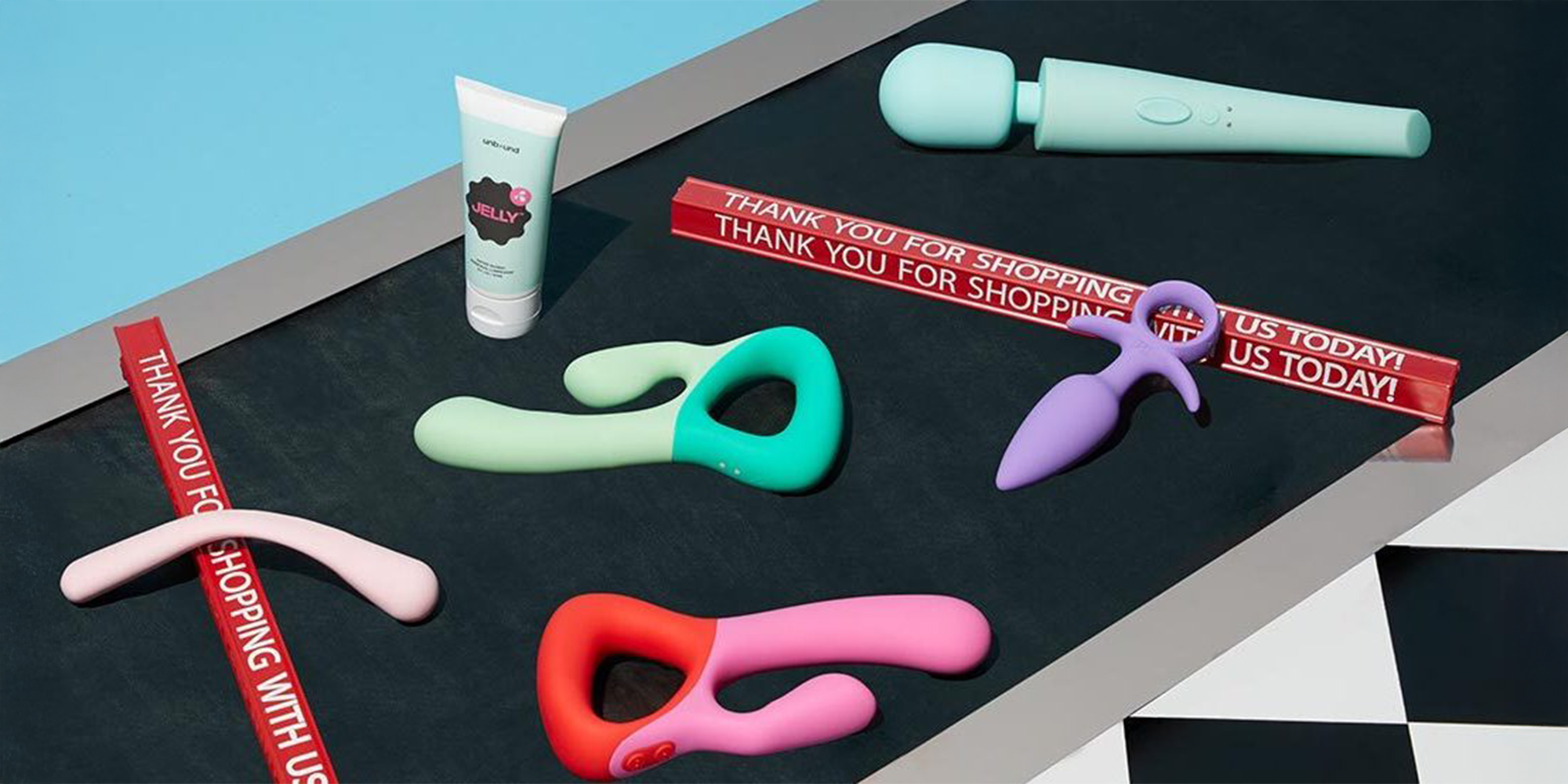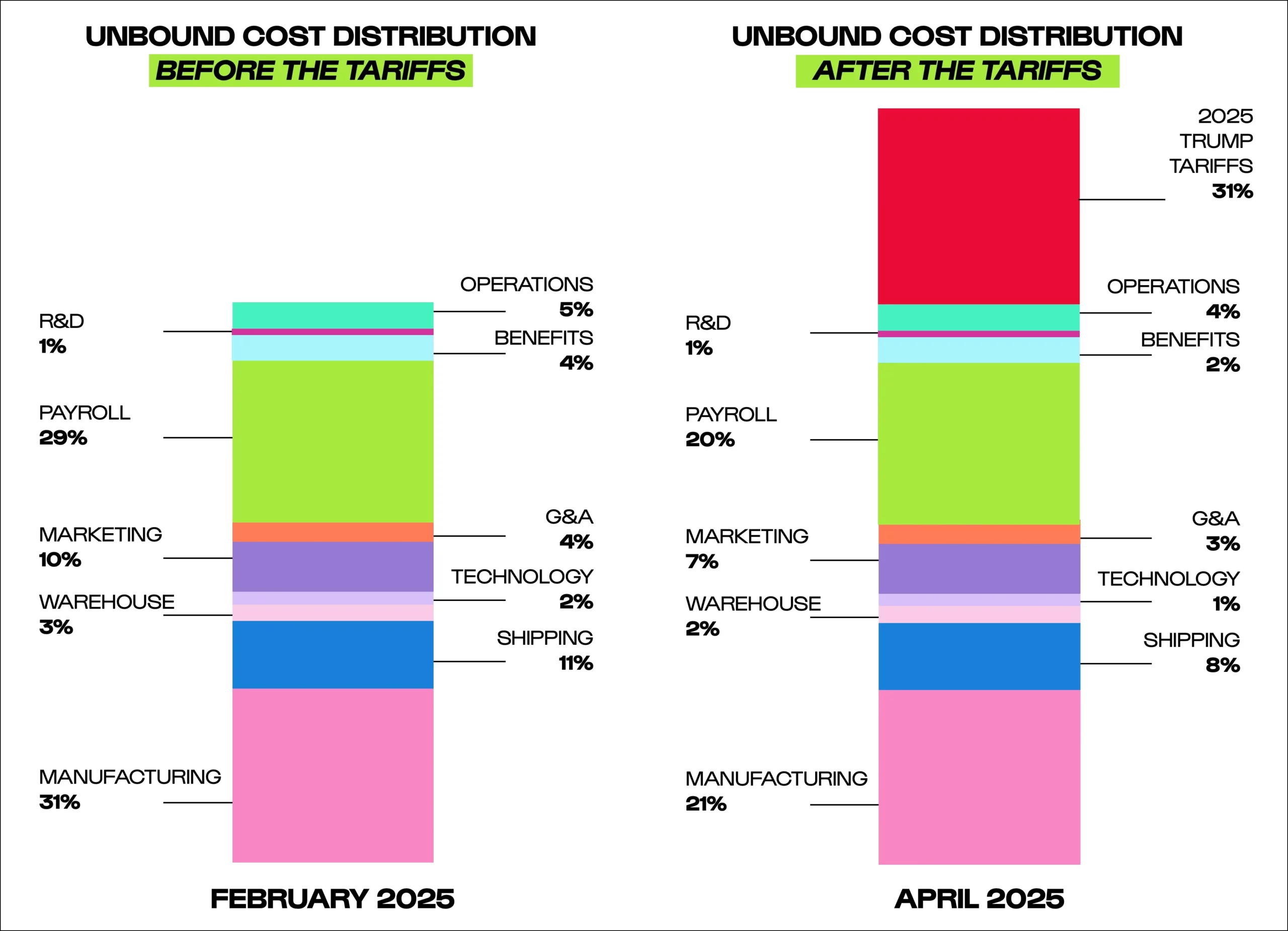
“Nowhere Left To Cut”: How Trump’s China Tariffs May Force Unbound To Double Prices To Stay Afloat
If President Donald Trump’s 145% tariffs on Chinese imports to the United States hold, Polly Rodriguez estimates she will have to double the prices she charges for her sexual wellness brand Unbound’s products.
“If businesses can figure out how to cut costs, maybe they don’t have to go up that much, but the problem is everybody’s been doing that for the last two to three years, so I think a lot of businesses are panicked,” she says. “There’s nowhere left to cut.”
Rodriguez laid bare the brutal effects of the tariffs on her small business, which sells sex toys, lubricants, body care, apparel and more priced from $8 to $98, in a LinkedIn post last week, disclosing that the tariffs have become 31% of Unbound’s total expenses, the single-biggest line item in its budget. In a follow-up Instagram post, Unbound revealed that a vibrator that had cost the brand $30 to make now costs it $75 thanks to the tariffs. Rodriguez says, “That shows just how big of an expense this is for small businesses.”
The sexual wellness category is particularly exposed to the impacts of the tariffs on China because 70% to 80% of the world’s sex toys are manufactured in China. In her LinkedIn post, Rodriguez explained, “The manufacturers in Shenzhen are exceptional at what they do. There is no other region that can match their quality of raw materials, technology, safety standards, manufacturing processes, speed and price.”

Unbound currently has inventory on ships heading from China to the United States. With the current tariff rate on Chinese imports, the brand will have to pay $65,000 to $70,000 on top of Unbound’s usual $50,000 bill to receive the goods. Rodriguez says, “That’s a full-time hire for an entire year.”
Other founders Rodriguez has spoken to are choosing not to ship their products, instead asking their Chinese manufacturers to keep the goods at their warehouses and going out of stock on certain items as a result. If a change to the tariff regulations doesn’t come, layoffs are likely in the near future. Rodriguez says, “That’s cheaper than paying the tariffs.”
Rodriguez speculates that many small businesses may resort to nefarious tactics to circumvent the tariffs, including falsifying the bill of ladings that lists the goods being transported or shipping inventory to another country first before shipping it to the U.S. “Technically that’s country of origin fraud,” she says. “People are going through insane loopholes to try to avoid the tariffs because it’s a number so outrageous that people can’t pay.”
In advance of the tariffs, consumer packaged goods companies had been slashing costs to respond to cautious consumers, advertising inefficiencies and the tightening funding landscape, giving them scant wiggle room in their remaining budgets for further cuts and little choice but to raise prices if the tariffs stay in place. Prices are already increasing. Filtered shower head brand Jolie and sexual wellness brand Dame have tacked on Trump surcharges to online orders. Unbound is considering a similar move to make it clear tariffs are to blame for the charge to customers rising.
“It’s critical for Americans to understand that you’re not getting a different product or a better quality product,” says Rodriguez. “It’s just more expensive because of taxes.”
At the moment, Rodriguez is in a large group of CPG brand founders that have opted to wait as long as possible to place reorders subject to the lofty tariffs in the hope they will be reduced or eliminated and price hikes can be avoided. Last week, about 40 female small business founders joined forces to ask Trump, United States Trade Representative Jamieson Greer and Congress for small business exemptions to the tariffs.
“We will do everything in our power to limit the impact to pricing,” writes Rodriguez on LinkedIn. “Unbound was built on the belief that sexual wellness products should be accessible for all, and we have always defined that as being well below $100. It is still our goal to maintain that threshold.”
Ultimately, Rodriguez fears the tariffs could be a death blow to small businesses like hers. There are roughly 33 million small businesses in the U.S., and they account for between 43.5% and 50.7% of the country’s gross domestic output, according to statistics gathered by the U.S. Chamber of Commerce.
Rodriguez says, “It’s really sad because small businesses used to be the backbone of America, and we’re literally killing them overnight.”





Leave a Reply
You must be logged in to post a comment.